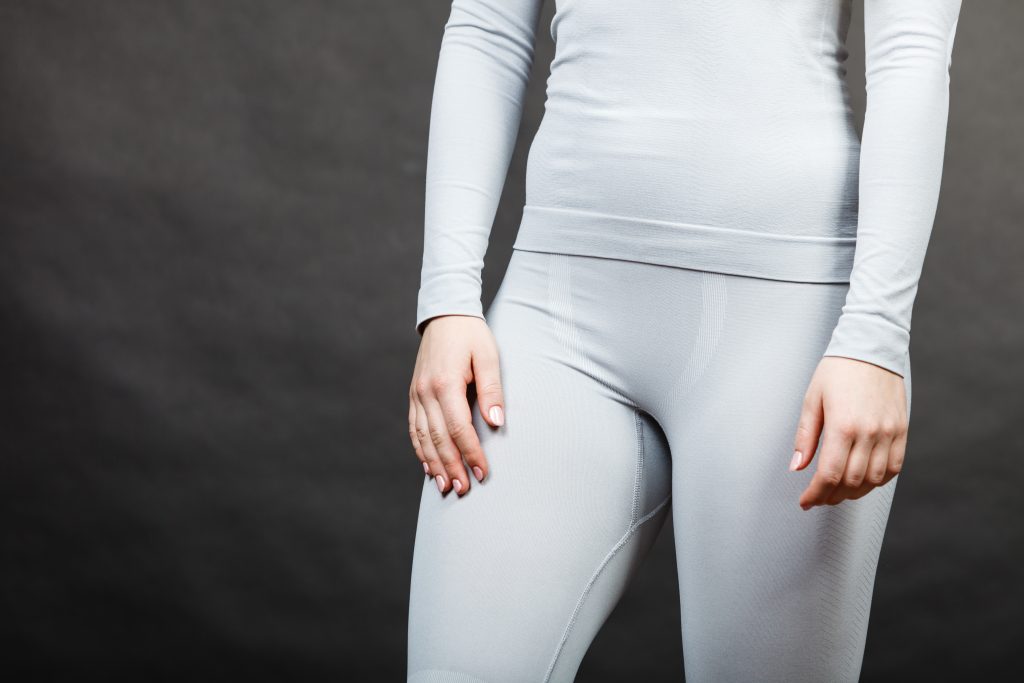The products and services mentioned below were selected independent of sales and advertising. However, Don't Waste Your Money may receive a small commission from the purchase of any products or services through an affiliate link to the retailer's website.
There comes a point every winter when simply throwing on a heavy coat over your outfit just isn’t enough to keep you warm. That’s when winter dressing becomes more complicated, as you find yourself wondering if it’s possible to stay warm and comfortable at the same time.
Fortunately, for any anyone living in an especially cold locale, the secret to a comfortable winter outfit is layering, from the best boot socks you can find to a cozy winter hat. Layering allows you to add and remove clothing items throughout the day to maintain the perfect amount of warmth, and it only requires some forethought.
So, whether you have to work all day in an under-insulated office or are planning a fun outdoor adventure in the snow, here are some tips for staying warm if you always seem to be cold.

How to Layer Your Winter Clothes
Experts typically recommend aiming for three layers of clothes for cold weather-dressing: a base layer, middle layer and outer layer. Also, keep in mind that any exposed areas of your body will lose heat, so it’s important to make sure you’re covered from head to toe, regardless of how many layers you’re wearing.
The Base Layer
Since your base layer makes direct contact with your skin, it’s important to choose moisture-wicking or quick-drying materials that will aid in regulating your body temperature. They should also feel nice to the touch since there’s nothing worse than dealing with itchy fabric rubbing your skin all day long. Merino wool and silk are considered excellent, albeit pricey, choices for base clothing, but soft fleece-lined polyester is a less expensive option that also works well. One fabric to avoid? Cotton. Its tendency to absorb moisture makes it a poor choice for base layer clothing since it can leave you feeling even colder as you sweat.

In terms of style, a coordinated thermal underwear set, like this bestselling Thermajane one at Amazon, is a great option for a base layer that looks nice enough to even be worn on its own in less-cold weather. However, any knitted top combined with leggings or long underwear would work, too. And don’t forget about something to keep your feet toasty all day — we’ve reviewed many brands and picked the best boot socks for women and best boot socks for men.
The Middle Layer
While your base layer may have been made of lightweight, moisture-wicking fabric, the middle layer is all about more insulating fabrics that will effectively retain body heat and stop cold air from reaching your skin. There are a wide range of fabrics that could potentially work well for this layer, but, generally, the thicker the material is, the warmer you’ll end up being.

Depending on how cold it is, a merino wool sweater, like this one from Woolly Clothing, or a fleece-lined zippered jacket, are good choices for middle-layer tops. For pants, opt for fleece-lined pants or, else, thick, heavyweight denim if you absolutely must wear jeans.
The Outer Layer
The purpose of the outer layer is to protect yourself from common winter elements, like rain, wind and snow. So, choosing wind- and water-resistant outer shells and accessories is key, and you’ll also want to make sure that this layer is easy to remove so you can de-layer if you find yourself feeling warmer later on in the day.
For coats, many puffers or parkas offer both wind- and water-resistance. You may want to look for one that extends beyond the waist and is insulated with down or and equivalent alternative material for extra-warmth. Don’t underestimate the importance of a thermal beanie hat, either, which can be combined with a jacket or coat hood for additional rain-protection.

Since some rain boots are made of thin rubber that offer little in the way of warmth (and not all winter boots can withstand slushy puddles), investing in a pair of winter boots like these from Aleader that can work in any type of weather is a great idea. Pairing them with the right boot socks will ensure your feet and toes, which can be especially prone to frostbite, stay dry and warm. Boot socks are typically several inches taller than crew socks, providing your ankles with some additional cold-protection.
Lastly, you’ll likely want to add a pair of gloves and a scarf to your outer layer wardrobe, too. Smart gloves that you don’t have to remove to use a touchscreen phone or tablet are especially nice to have. Meanwhile, an insulated full-face mask for especially cold days wouldn’t look out of place in today’s world and does a good job of protecting your head, face and ears, as well as your neck.
With these tips and a little wardrobe-planning, you can avoid that too-cold feeling this winter by layering your clothes to your desired temperature.
This story originally appeared on Don't Waste Your Money. Checkout Don't Waste Your Money for product reviews and other great ideas to save and make money.


